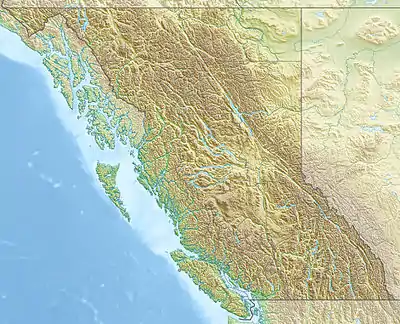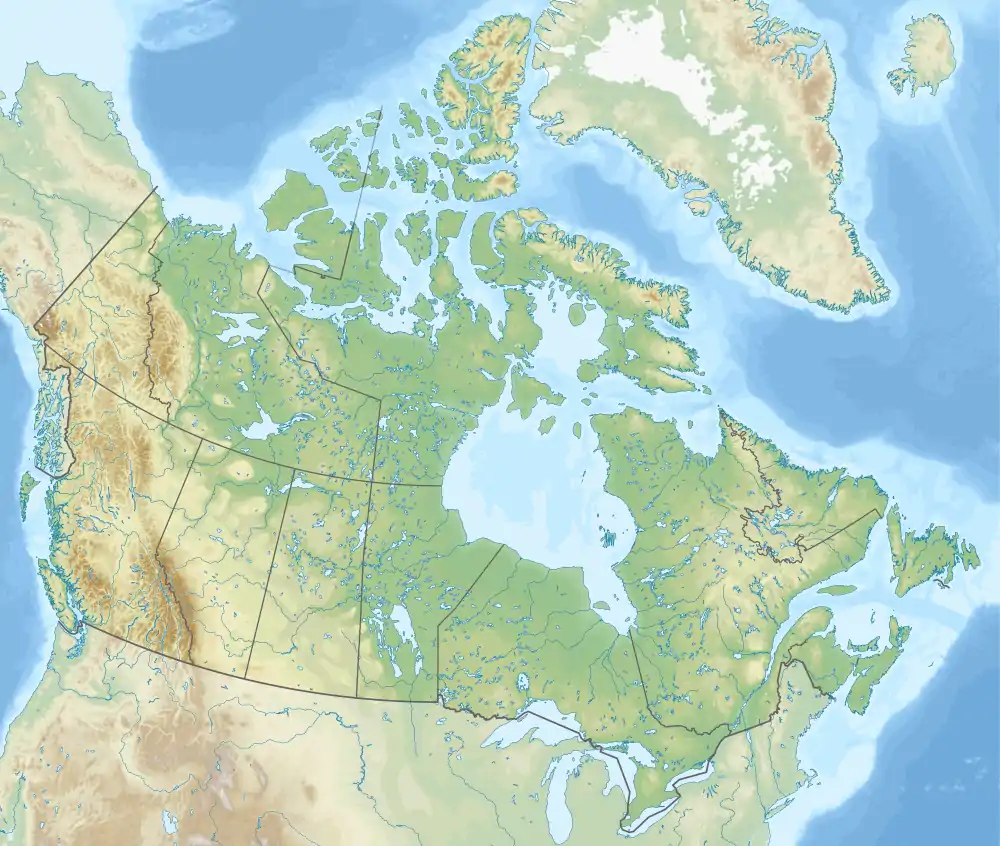Rostrum Peak
Rostrum Peak is a 3,284-metre (10,774-foot) mountain summit located in the Canadian Rockies of British Columbia, Canada. Rostrum is the highest summit of the Bush Mountain massif. Its nearest higher peak is Christian Peak, 13.5 km (8.4 mi) to the north-northeast.[1] Icefall Peak lies 2 km (1.2 mi) to the north-northwest. The peak was named in 1918 for its resemblance to a rostrum, and was officially adopted in 1924 when approved by the Geographical Names Board of Canada.[2] [3] The first ascent of the mountain was made in 1936 by W.N.M. Hogg with guide Christian Hasler Jr.[3]
| Rostrum Peak | |
|---|---|
 Rostrum Peak | |
| Highest point | |
| Elevation | 3,284 m (10,774 ft) [1] |
| Prominence | 704 m (2,310 ft) [1] |
| Parent peak | Christian Peak (3406 m)[1] |
| Coordinates | 51°49′54″N 117°10′26″W [2] |
| Geography | |
 Rostrum Peak Location of Rostrum Peak in British Columbia  Rostrum Peak Rostrum Peak (Canada) | |
| Location | British Columbia, Canada |
| Parent range | Canadian Rockies |
| Topo map | NTS 82N14[2] |
| Geology | |
| Age of rock | Cambrian |
| Type of rock | sedimentary rock |
| Climbing | |
| First ascent | 1936 W.N.M. Hogg, Christian Hasler Jr |
| Easiest route | Mountaineering |
Geology
Rostrum Peak is composed of sedimentary rock laid down during the Precambrian to Jurassic periods. Formed in shallow seas, this sedimentary rock was pushed east and over the top of younger rock during the Laramide orogeny.[4]
Climate
Based on the Köppen climate classification, Rostrum Peak is located in a subarctic climate zone with cold, snowy winters, and mild summers.[5] Temperatures can drop below −20 °C with wind chill factors below −30 °C. Precipitation runoff from the peak drains into tributaries of the Valenciennes River.
References
- "Rostrum Peak (Bush Mountain)". Bivouac.com. Retrieved 2019-05-09.
- "Rostrum Peak". Geographical Names Data Base. Natural Resources Canada. Retrieved 2019-05-09.
- Rostrum Peak PeakFinder
- Gadd, Ben (2008). "Geology of the Rocky Mountains and Columbias". Cite journal requires
|journal=(help) - Peel, M. C.; Finlayson, B. L.; McMahon, T. A. (2007). "Updated world map of the Köppen−Geiger climate classification". Hydrol. Earth Syst. Sci. 11: 1633–1644. ISSN 1027-5606.
External links
- Weather: Rostrum Peak